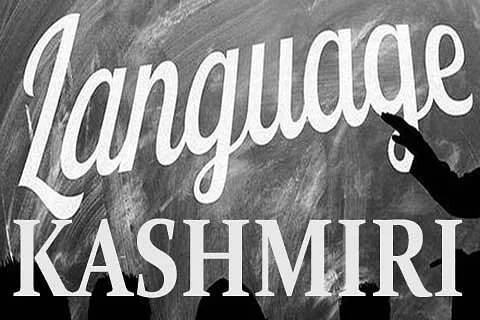Linguists and experts have expressed concern over the withdrawing of Kashmiri language from MHRD language-promoting portal — Bhasha Sangam — after Kashmiri Pandits (KP) objected to the version of the language used.
The controversy erupted after some Pandit journalists and scholars accused the Ministry of Human Resource Development of using the script “widely used by Kashmiri Muslims” and “ignoring Kashmiri Hindus”, who according to them speak the language differently.
Following the objections, MHRD removed entire Kashmiri language from the portal on Monday.
“Sentence translations in Kashmiri under Bhasha Sangam were prepared by NCERT in association with language experts from Dept of Education, J&K & University of Kashmir. @HRDMinistry is sensitive to the comments raised & has therefore decided to withdraw them,” the ministry said in a tweet.
“Bhasha Sangam” is an attempt by MHRD to familiarise every child in the country with simple dialogues in all the 22 languages, including Kashmiri, under Schedule 8 of the Constitution.
The words which Pandits objected include the most commonly spoken ones. The portal translated Hello in Kashmiri as ‘Asalam Alaikum.’ The Pandits said that they use Namaskar as greetings and the word used is a Muslim way of greeting.
The translation of ‘How are you’ in Kashmiri as ‘tui chhu haz theek’ was also objected by Pandits. They term ‘Haz’ word as being exclusively Muslim one, as Pandits use word ‘Mahra’.
The Pandits demanded that both versions of language should have been used.
Experts and linguist in Kashmir termed it as making a mountain out of a molehill. “There is always a middle way. It is OK that they had objections with some words or we had some objections. But the removal of entire language from the portal has been a shocker,” said Prof Majrooh Rashid, HoD Kashmiri department Kashmir University.
“They should have formed a committee of experts who could have looked into the issue and given its scholarly report.”
Majrooh said that the Kashmiri language had imbibed influence from various languages over thousands of years and binding it with religion only is unfair.
“Kashmiri language is as old as the Kashmiri nation. During that time religions as well as rulers changed. The language kept on absorbing words from official languages of those times like Sanskrit, Persian, Arabic, Urdu and now even English,” said Majrooh. “The current script is official version used by Government to University to Sahitya Akademi. So there is no question of it being wrong.”
Explaining the inseparable bond of Kashmiri with Persio-Arabic, Majrooh said that even the word Kashmiri itself is of Persian origin.
“In Kashmiri language we use word Koshur. The word Kashmiri came from Persian, where it was first used by poet Hafiz in one of his poems.
“Zesher e hafiz e sheeraz, Me goyend o me raksand, Siya chashman e Kashmiri, Va turkani Samarkandi,” said Majrooh wondering whether the ‘opponents’ will object to this word too. “All the best Sufi poetry, be it of Sheikh ul Alam or Lal Did, is in Persio-Arabic script. The influence is immense, which no one can deny.”
Others called for using neutral word instead of using religion to settle language scores. “If they have issue with Hello as Asalam u Alaikum, let us reach out at some neutral word,” said Prof Gulshan Majeed, a linguist and writer. “For their information Pandits didn’t use to greet each other with word Namaskar, instead they used word Bandagi.”
Prof Gulshan said that there are numerous examples where Kashmiri Pandits have wholeheartedly accepted Persian, Arabic words for Kashmiri and even use now. He said that some Pandits even use Khan and Pathan caste. “They use Persian words like Naar (fire), Kaleen (carpet) and others. Language is made over thousands of years through interactions, evolution or society and other influences,” said Gulshan adding that the issues raised are of minor nature and experts could have easily reached a middle ground rather than taking extreme steps.






